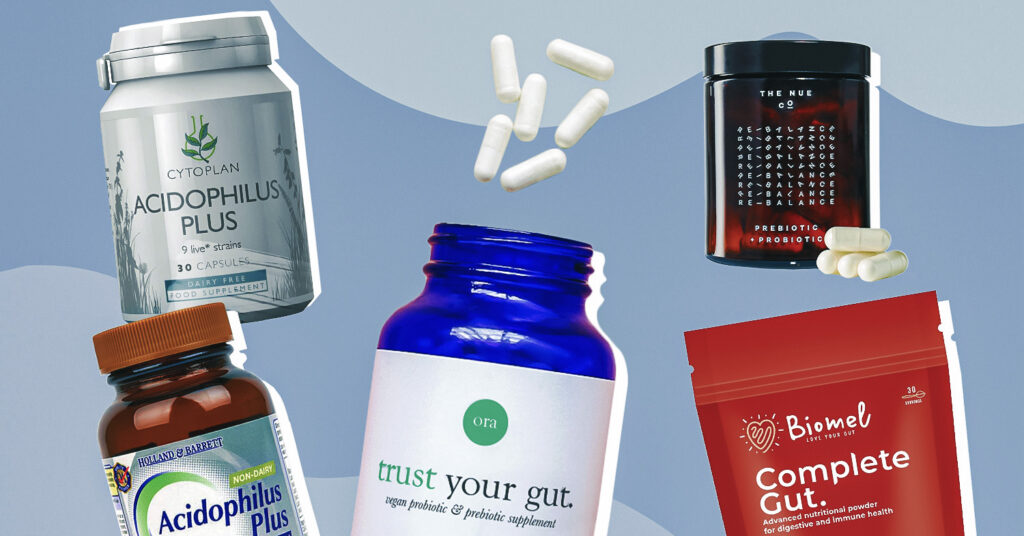Probiotics are important for gut health, and sales are booming.
According to a recent analysis by Fortune Business Insights, the global probiotic market could be worth an enormous $94.48 billion by 2027. Experts also predict significant growth for the vegan supplements market in general, and Allied Analytics suggests that it could register more than $13 million by 2028, the following year.
The boom is happening for several reasons: increasing nutritional consciousness, plant-based eating, and an overall awareness of the importance of food—and the gut—in optimizing health.
The International Food Information Council’s 2020 Food & Health Survey found that 54 percent of all consumers are more likely to care about the “healthfulness of their choices” today compared to 2010.
According to Fortune Business Insights, a considerable portion of health-conscious, vegan consumers are also more likely to purchase nutraceutical products such as vitamins, supplements, and probiotics in general. But not all probiotics are equal, and not all are vegan.
How probiotics impact gut health
We spoke to Sonal Shah to get the lowdown on gut health, fermented foods, and vegan probiotics. Shah is a sports nutritionist, a gut health specialist, an expert on plant-based diets, and the founder and director of Synergy Nutrition in London, UK.
“I view the gut now as being like a second brain. I think it’s a really important organ,” says Shah. “The research now is linking gut health to so many diseases—even things like obesity and mental health. That makes sense, because if you look at the gut it has the same neurotransmitters as the brain does. One affects the other.”
According to Shah, evidence links the microbiome (a “terrain of different bacteria” within our bodies that is invisible to the naked eye) to certain signs and symptoms of illnesses.
“I think that gut health is really fragile, and it’s important from birth all the way to adulthood,” says Shah. “Really, my view on health is, if we look after the gut, nine times out of 10 everything else is going to be well in the body.”
What about fermented foods?
Fermented foods are rich in probiotic bacteria (the same thing that’s in probiotic supplements), and as such are thought to be hugely beneficial to gut health.
There are countless contextual factors that make it difficult to track nutrition and general health in a scientific way, but by looking at cultural dietary practices it’s possible to make some assumptions about healthfulness.
For example, Shah points out that each culture has its own version of fermented food, from kombucha to tempeh. “There is some truth behind them, definitely,” she says. “We don’t know the exact mechanisms, but it seems like it’s all about bacteria and what makes them thrive.”
However, she is quick to add that this is not a replacement for the higher support required in the treatment of health conditions such as IBS or an inflamed gut. Instead, supplementation may provide a more efficient way of tackling chronic issues.

Why take probiotic supplements for gut health?
Shah says that for those looking to boost their gut health, she would specifically recommend supplements rather than trying to get everything from fermented and probiotic-rich food alone. Plus, they’re ideal for those with allergies—and Shah says that she has never encountered side effects, either first or second-hand.
“Supplements do have their place. It’s about getting slightly higher doses through that supplement form, as you would in a food form,” explains Shah. “They’re a bit more concentrated, so to take a probiotic in a supplement form is going to be much more therapeutic.”
As Shah notes, the industry is flooded with different companies, which can make choosing a probiotic difficult. “The company I use is called The Natural Dispensary,” she says. “They cherry-pick the best supplements from different brands and promote them to practitioners.”
How do probiotics work?
Probiotics are typically made from either fermented plants or fermented dairy, and some may be contained in gelatine-based capsules, so not all of them are vegan.
The quality and quantity of bacteria also vary a huge amount from brand to brand, so it’s important to read the ingredients. “Don’t be afraid to go high,” advises Shah. “You want to go for billions, that’s what you need.”
While there’s a possibility of placebo effect, the majority of those who try probiotics report positive results. “We don’t know how much that plays a role in taking supplements,” says Shah. “But I have so many clients with IBS or bloating and when they take it they’re better within two weeks.”
“That I do attribute to the changes in their diets and the supplements working together,” she continues. “I definitely would highly recommend supplements.”
LIVEKINDLY is here to help you navigate the growing marketplace of sustainable products that promote a kinder planet. All of our selections are curated by the editorial team. If you buy something we link to on our site, LIVEKINDLY may earn a commission.


